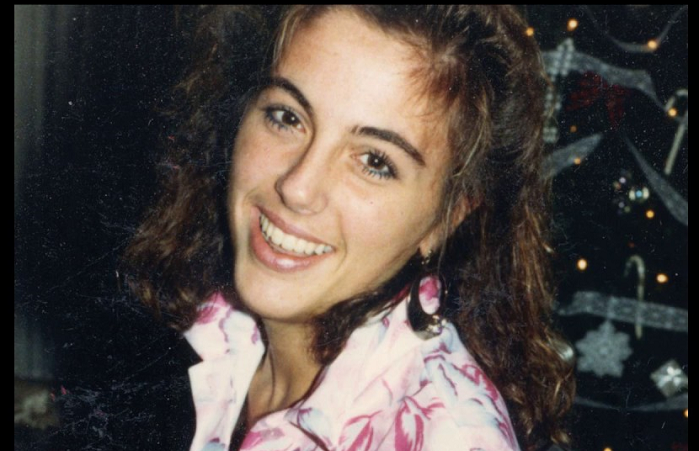Today, March 31, 2025, marks 20 years since Terri Schiavo’s death.
It’s a day that her family, particularly her brother Bobby Schindler, remembers not as a quiet passing, but as the end of a brutal, court-ordered ordeal.
For the Schindler family, Terri’s death was no abstract ethical debate; it was a deeply personal tragedy, a wound that has not healed.
Two decades ago, after a 15-year struggle to keep their daughter and sister alive, they watched helplessly as she was starved and dehydrated over 13 agonizing days, following a judge’s ruling to remove her feeding tube. This anniversary is not just a moment to mourn Terri, but a clarion call from her family to ensure her suffering—and their loss—spurs action to protect others.
Terri was 26 in 1990 when she collapsed under what Bobby Schindler describes as “suspicious circumstances while home alone with her husband, Michael Schiavo.” The incident left her with a severe brain injury that impaired her ability to swallow, necessitating a feeding tube.
Follow LifeNews.com on Instagram for pro-life pictures and videos.
Initially, Michael was appointed her legal guardian, tasked with making decisions in her best interest—a role the Schindler family trusted him to fulfill, especially after a nearly million-dollar medical trust was established in 1993 for Terri’s lifelong care. But, as Bobby recounts, “shortly thereafter, in the spring of 1993, Michael unexpectedly had a change of heart. Instead of honoring his wedding vows, he decided to end Terri’s life.”
For the Schindlers, this betrayal marked the beginning of a nightmare.
Bobby writes, “What followed was an excruciating death lasting more than 13 days. Our family watched helplessly as Terri endured a brutal death by dehydration and starvation.”
They pleaded with Michael and the courts to let them take Terri home, to care for her themselves, but their cries fell on deaf ears. Circuit Court Judge George W. Greer sided with Michael, ordering the removal of the feeding tube on March 18, 2005. Terri died 13 days later, on March 31, surrounded by a family powerless to save her.
The Schindlers’ grief is compounded by the conviction that Terri’s death was not only preventable but unjust.
Bobby insists, “Terri was not dying of any disease or condition. She required only love, care, and food and water from a feeding tube since she struggled to swallow due to her brain injury.”
To them, she was not a symbol of a “right to die,” but a vibrant soul whose life was cut short by a system that failed her. Videos of Terri blinking and seemingly responding to her family fueled their belief that she retained some awareness—a belief dismissed by the courts, yet unshakable for those who knew her best.
The public spectacle that enveloped Terri’s case only deepened the family’s pain.
“The circus of media coverage, the political posturing, the protests outside her hospice—all of it overshadowed the quiet tragedy of a woman caught in the crossfire,” Bobby reflects.
For the Schindlers, the battle was never about ideology; it was about their daughter, their sister. They saw Michael’s shift—living with another woman and fathering children while still Terri’s legal guardian—as a betrayal not just of Terri, but of their trust.
“Michael would inherit Terri’s close to a million-dollar medical trust fund intended for her life-long care,” Bobby notes, a detail that still stings with suspicion and sorrow.
In the wake of Terri’s death, the Schindlers channeled their anguish into advocacy, founding the Terri Schiavo Life & Hope Network.
Bobby explains, “In response to this perversion of justice, our family founded the Terri Schiavo Life & Hope Network to spare other families from experiencing the same tragedy as Terri.”
Their mission is threefold: advocating for patients, educating the public about threats in healthcare, and ensuring Terri’s “senseless and inhumane death is never forgotten.” For 20 years, they’ve supported thousands of families, bearing witness to a healthcare system they believe increasingly devalues the vulnerable.
The Schindlers’ perspective is a plea rooted in raw experience.
“As shocking as the question may be,” Bobby writes, “we must ask how the United States reached the point where, for the first time in its history, a court ordered the death of an innocent, brain-injured American citizen, and where such an act has come to be seen as appropriate for other defenseless patients.”
They see Terri’s case as a tipping point, a moment when feeding tubes were reclassified from basic care to “medical treatment,” paving the way for countless others to suffer similar fates. To the family, this shift is not progress—it’s a betrayal of human dignity.
Today, as they mourn Terri, the Schindlers urge us to remember her not as a legal precedent, but as a person—a daughter and sister whose laughter once filled their lives.
“Terri deserved better,” Bobby insists, and their fight continues so others might be spared her fate. In their eyes, her death was a loss not just for them, but for a society that failed to protect her.
May their grief, 20 years on, inspire us to listen, to act, and to honor the sanctity of every life—however it is lived.
The post Terri Schiavo Died 20 years Ago Today: We Must Never Forget Her appeared first on LifeNews.com.

